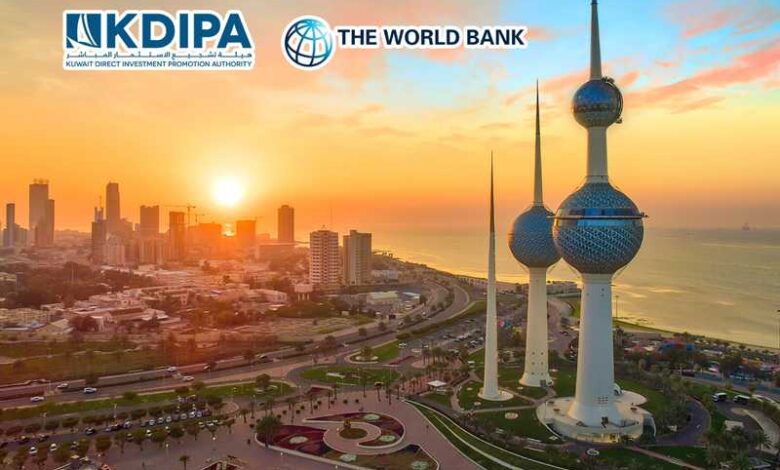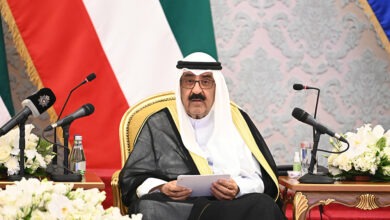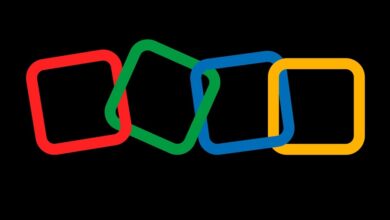Kuwait launches tech-driven court reforms to boost business climate
The Kuwait Direct Investment Promotion Authority and the World Bank will soon meet with relevant authorities to enhance Kuwait’s global business rankings, focusing on judicial, commercial, and economic procedures.

• Kuwait’s business community struggles with lengthy litigation, delayed judgment enforcement, and complex contract disputes, often taking years to resolve financial and commercial cases.
The Kuwait Direct Investment Promotion Authority is spearheading a technical initiative, in collaboration with the World Bank, to enhance the business environment by improving litigation procedures for business and economic disputes in Kuwaiti courts, the Al-Qabas newspaper reported.
It is noteworthy that the authority has a technical cooperation agreement with the World Bank Group to support the reform of the business environment in the State of Kuwait, based on the measured components of the Global Doing Business Report, which is issued annually by the World Bank.
Informed sources told the newspaper that the authority and the World Bank are preparing to hold several meetings soon with the authorities responsible for law enforcement, including the Ministry of Justice, the Supreme Council of the Judiciary, the General Directorate of Fatwa and Legislation, and other relevant entities, to improve Kuwait’s global ranking in business environment indicators, particularly those related to courts and judicial, commercial, and economic procedures.
Lengthy litigation procedures
The sources noted that the business community in Kuwait faces lengthy litigation procedures for both small and large financial and commercial cases, as resolving commercial and financial lawsuits can take many years. Additionally, complexities arise in the enforcement of judgments and contracts, as well as in the recovery of funds linked to commercial disputes.
They highlighted that the efforts to encourage direct investment, in cooperation with the World Bank and judicial authorities, will focus on measuring business practices, particularly contract enforcement, in terms of the time and costs required to resolve commercial disputes in Kuwaiti courts. This will also include proposing legislative amendments to reduce time delays and financial burdens, and implementing specialized systems to expedite small financial and commercial lawsuits.
The meetings will also address the assessment of a plaintiff’s ability to obtain a pre-seizure judgment (pre-trial) on a defendant’s movable assets, in cases where there is concern that the assets might be transferred outside the jurisdiction or dissipated in other ways.
Commercial and economic judgments
The joint meetings will assess whether commercial and economic judgments issued by local courts are made available to the public through publication in official gazettes, newspapers, or online.
The meetings will also discuss whether reconciliation, compromise mediation procedures, or both are recognized in the settlement of commercial disputes.
Additionally, they will explore whether any financial incentives exist to encourage parties to seek mediation or reconciliation, such as the refund of court fees, income tax deductions, or similar benefits if mediation or reconciliation is successful.
Legislative and procedural obstacles
The following is a summary of the roadmap that the Kuwait Direct Investment Promotion Authority, the World Bank, and the judicial authorities aim to evaluate and improve regarding the judicial environment and procedures:
- Evaluating the electronic services provided by the Ministry of Justice and other relevant authorities related to electronic litigation in commercial and economic disputes.
- Identifying the parties involved in litigation procedures for commercial and economic disputes:
- Legal requirements (De jure).
- Practical requirements (De facto).
- Studying the automation of procedures at all levels and improving the reliability of these services.
- Identifying legislative and procedural obstacles, and proposing draft laws that contribute to the development of electronic and digital services. Submitting necessary legislative amendments to current laws, especially in the following areas:
- Conciliation, Mediation, and Arbitration Law and related procedures.
- Consider amending the Civil and Commercial Procedures Law regarding postponement cases.
- Re-evaluate judicial fees.
- Publish significant and final commercial and civil judgments, particularly those affecting or issued against listed companies, as they are required to disclose such judgments.
- Evaluate the organizational structure of the sector or service provider and integrate joint procedures.
- Make statistical data available for publication in accordance with international best practices.
Improving the quality of judicial procedures
The entities participating in the business environment improvement committees related to judicial aspects will operate under the framework of contract enforcement, as specified by the World Bank. They will draw on reforms that include examples related to improving the quality of judicial procedures, such as:
- Electronic filing procedures for primary complaints.
- Setting up a commercial court or a dedicated department within it.
- Introducing specialized systems to expedite the resolution of small financial and business lawsuits.
- Legislative and administrative amendments affecting the time and cost required to settle commercial disputes.
Nine entities are involved in developing procedural improvements:
- Ministry of Justice.
- Kuwait Bar Association.
- Supreme Judicial Council.
- Department of Fatwa and Legislation.
- General Court Clerks Administration.
- Public Authority for Civil Information.
- Central Agency for Information Technology.
- Judicial Arbitration Department.
- General Directorate of Enforcement, Ministry of Justice.













